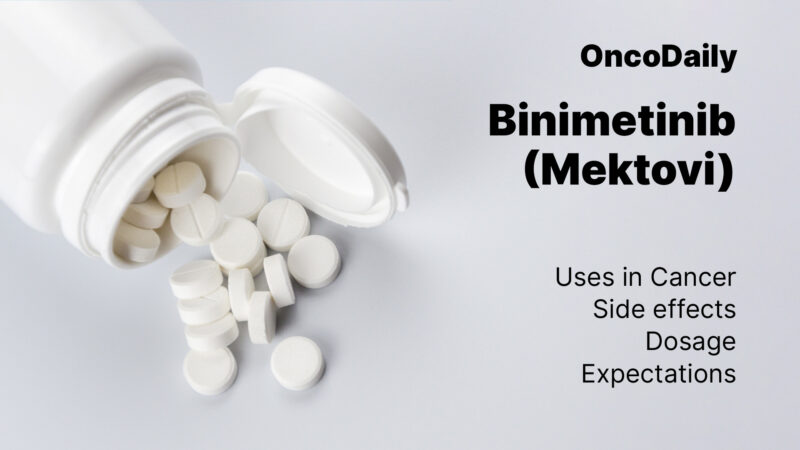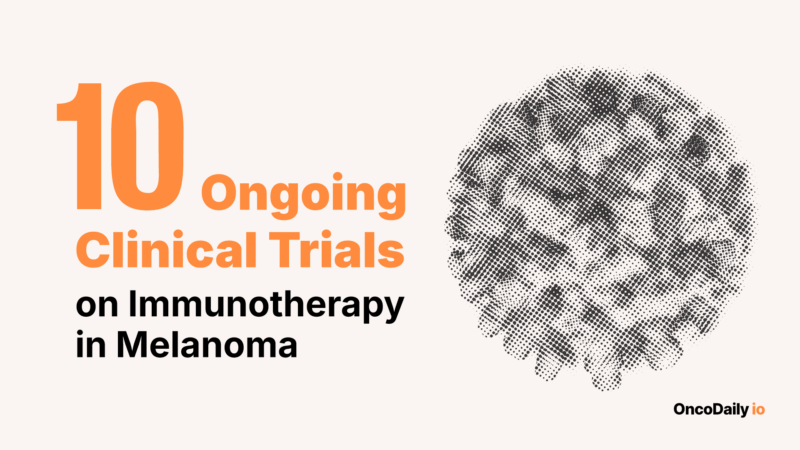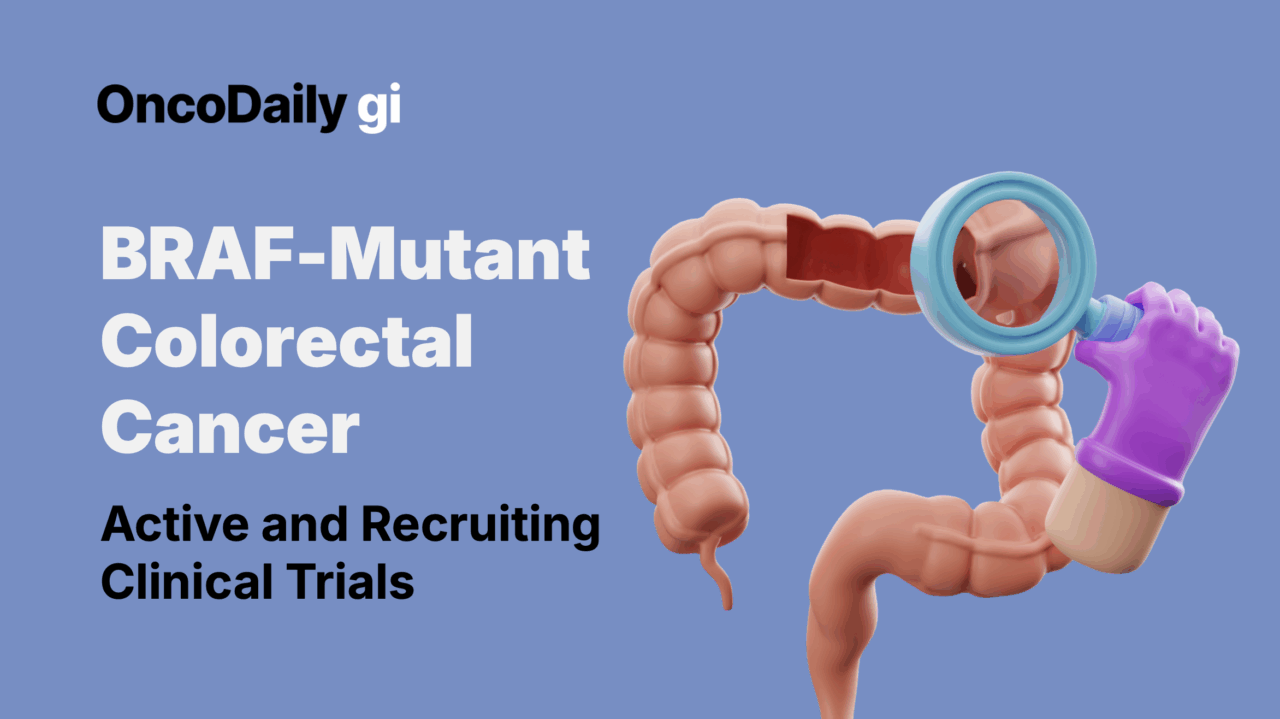Metastatic colorectal cancer with BRAF V600E mutations, present in about 8–12% of cases, represents a clinically distinct subtype marked by poorer prognosis and limited response to conventional chemotherapy compared with BRAF wild-type disease. Over the past decade, advances in targeted therapies, immunotherapy combinations, and novel treatment strategies have reshaped the research landscape. Today, multiple clinical trials are actively investigating ways to overcome resistance mechanisms, improve survival, and personalize therapy for patients with BRAF-mutant colorectal cancer.
This article highlights the most important active and recruiting Phase II trials in this space, offering insight into the next wave of practice-changing developments and why they matter for both clinicians and patients.
IB-FOLFIRI in BRAF V600E-Mutant Metastatic Colorectal Cancer
Phase: II
Study Type: Single-arm
Location: Guangzhou, Guangdong, China
Study ID: NCT07150247
This trial evaluates the safety and efficacy of IB-FOLFIRI, a combination of Iparomlimab, Tuvonralimab, bevacizumab, and FOLFIRI (5-Fluorouracil + Irinotecan), in adults with BRAF V600E-mutant metastatic colorectal cancer (mCRC), a subgroup with limited treatment options and poor prognosis.
Key Objectives
- Assess whether IB-FOLFIRI improves clinical outcomes compared with historical data
- Evaluate the safety and tolerability of the regimen
- Explore biomarkers, including ctDNA, to understand resistance mechanisms
Patients receive therapy every two weeks, with regular imaging and clinical evaluations to monitor response and safety. Blood and tumor samples are collected for exploratory biomarker analyses, which may guide future precision medicine strategies in BRAF V600E-mutant mCRC.
CEBBRA Trial: Cetuximab with Encorafenib and Binimetinib in BRAF V600E-Mutated MSS Advanced Colorectal Cancer
Phase: II
Study Type: Multicenter, induction therapy
Location: Madrid, Spain
Study ID: NCT06207656
The CEBBRA trial investigates the efficacy and safety of cetuximab combined with encorafenib and binimetinib as induction treatment in patients with BRAF V600E-mutated MSS advanced colorectal cancer who are initially resectable or potentially resectable. This population has historically shown poor response to standard therapies, highlighting a significant unmet medical need.
Key Objectives
- Evaluate whether the triplet therapy improves treatment outcomes compared with historical data in this patient population
- Assess the safety and tolerability of cetuximab, encorafenib, and binimetinib combination
- Explore potential use as induction therapy to increase resectability or improve response in oligometastatic disease
Patients receive the triplet regimen as induction therapy, with regular clinical assessments and imaging to monitor response and safety. Previous phase III data comparing the triplet therapy to standard care (cetuximab plus irinotecan or cetuximab plus FOLFIRI) showed a higher median overall survival (9.3 vs. 5.9 months) and improved response rates (26.8% vs. 1.8%). Grade 3 adverse events were reported in 65.8% of the triplet therapy group versus 64.2% in the control group, indicating an acceptable safety profile. These findings support the potential use of the combination as induction therapyto improve outcomes in this high-risk population.

Read more about Binimetinib (Mektovi): Uses in Cancer, Side effects, Dosage, Expectations on OncoDaily.
NEORAF Trial: Encorafenib Plus Cetuximab as Neoadjuvant Therapy in BRAF V600E-Mutated Localized Colon or Upper Rectum Cancer
Phase: II
Study Type: Multicenter, neoadjuvant therapy
Location: France
Study ID: NCT05706779
The NEORAF trial investigates the concept of anti-BRAF neoadjuvant therapy using encorafenib combined with cetuximab in patients with localized colon cancer or rT3/T4 supra-peritoneal upper rectal cancer. Only patients whose tumors are confirmed as BRAF V600E-mutated and RAS wild-type are included in the study, with a goal of enrolling 30 eligible patients.
Key Objectives:
- Evaluate whether the triplet therapy before surgery can shrink tumors and improve surgical outcomes
- Assess the safety and tolerability of encorafenib plus cetuximab in a preoperative setting
- Ensure accurate patient selection using centralized genetic assessment to confirm mutation status
Patients who are not confirmed as BRAF V600E-mutated or RAS wild-type are discontinued from treatment and replaced to maintain the target sample size. The study also accounts for early discontinuations to ensure 30 patients complete neoadjuvant therapy and undergo surgery.
BRICKET Trial: ctDNA-Guided Encorafenib Plus Cetuximab Retreatment in BRAF V600E Mutated mCRC
Phase: II
Study Type: Multicenter, open-label, interventional
Location: Italy
Study ID: NCT06578559
The BRICKET trial evaluates ctDNA-guided retreatment with encorafenib plus cetuximab in patients with BRAF V600E-mutant metastatic colorectal cancer (mCRC) who previously benefited from the same regimen but developed secondary resistance. Eligible patients must have BRAFV600E mutation, KRAS, NRAS, MAP2K1 wild-type, and no MET amplification in ctDNA at study entry.
This proof-of-concept, single-arm phase II study investigates whether retreatment can restore clinical benefit while providing insights into precision biomarker-guided therapy in BRAF-mutated mCRC.
Key Objectives
- Evaluate antitumor activity based on best response (RECIST v1.1)
- Assess safety and tolerability of retreatment
- Explore the role of ctDNA in guiding therapy selection and resistance monitoring
Patients receive encorafenib 300 mg orally daily and cetuximab 500 mg/m² intravenously every 14 days in 28-day cycles until disease progression, unacceptable toxicity, consent withdrawal, or initiation of subsequent therapy.
IMPROVEMENT-2 Trial: FOLFIRI + Vemurafenib + Cetuximab in First-line BRAFV600E-Mutated CRC
Phase: II
Study Type: Randomized, multicenter, controlled
Location: China
Study ID: NCT06603376
The IMPROVEMENT-2 trial is testing whether adding vemurafenib (BRAF inhibitor) and cetuximab (EGFR inhibitor) to a backbone of liposomal irinotecan–based FOLFIRI chemotherapy can improve outcomes for patients with BRAFV600E-mutant advanced colorectal cancer in the first-line setting. BRAFV600E mutations occur in about 8–10% of CRC cases and are associated with poor prognosis and limited benefit from standard chemotherapy.
This study builds on results from the earlier IMPROVEMENT trial, which showed promising activity with this chemo–targeted combination in a single-arm design. IMPROVEMENT-2 is designed to validate these findings in a randomized controlled setting.
Key Objectives
- Primary: Compare progression-free survival (PFS) between FOLFIRI + vemurafenib + cetuximab vs. FOLFIRI ± bevacizumab.
- Secondary: Evaluate overall survival (OS), objective response rate (ORR), safety, tolerability, and patient-reported outcomes
- Exploratory: Investigate biomarkers of response and resistance.
Participants are randomized to receive either the investigational regimen—FOLFIRI with liposomal irinotecan combined with vemurafenib and cetuximab—or the control regimen of FOLFIRI with or without bevacizumab. Treatment continues in 28-day cycles until disease progression, unacceptable toxicity, or withdrawal.
BRAVE Trial: Encorafenib, Cetuximab, and Bevacizumab in BRAF V600E-Mutated Metastatic CRC
Phase: II
Study Type: Multicenter, open-label, interventional
Location: Barcelona, Spain
Study ID: NCT06411600
The BRAVE trial is testing a triple combination—encorafenib, cetuximab, and bevacizumab—in patients with BRAF V600E-mutant metastatic colorectal cancer (mCRC) who progressed after one or two prior chemotherapy regimens. This mutation, present in about 8–10% of CRC cases, is linked to poor prognosis and limited treatment options.
Preclinical data suggest that VEGFA overexpression may drive resistance to BRAF inhibitors. By adding bevacizumab, an anti-VEGF therapy, to the established encorafenib-cetuximab doublet, researchers aim to delay resistance and improve progression-free survival (PFS).
Key Objectives
- Primary: Evaluate antitumor activity via confirmed PFS (per RECIST v1.1).
- Secondary: Assess safety, objective response rate (ORR), duration of response, overall survival (OS), and patient-reported outcomes.
- Exploratory: Identify biomarkers of resistance and test functional models for novel therapeutic combinations.
Patients in the trial receive encorafenib 300 mg orally once daily, combined with cetuximab 500 mg/m² given intravenously every two weeks and bevacizumab 5 mg/kg administered every two weeks. The regimen is delivered in 28-day cycles and is continued until disease progression, unacceptable toxicity, withdrawal of consent, or the start of another anticancer therapy.
VICPROIRI Trial: Irinotecan Liposomes Combined with Cetuximab and Vermofenib in Second-Line Advanced Colorectal Cancer
Phase: II
Study Type: Interventional, exploratory
Location: China
Study ID: NCT06763029
The VICPROIRI trial evaluates the safety and efficacy of irinotecan liposomes combined with cetuximab and vermofenib in patients with advanced colorectal cancer who experienced first-line treatment failure. The study focuses on patients with RAS wild-type and BRAF-mutated tumors, aiming to provide improved therapeutic optionsfor this difficult-to-treat population.
Key Objectives
- Assess whether irinotecan liposomes improve efficacy and safety compared to conventional irinotecan in second-line therapy
- Explore biomarker-driven responses, including ctDNA, immune microenvironment indicators, tumor mutation load, lymphocyte subsets, cytokines, and gut microbiota
- Identify patient subgroups most likely to benefit from irinotecan liposomes
Patients receive the triplet combination and undergo regular monitoring to evaluate tumor response, safety, and exploratory biomarker correlations.
ECLYPse Trial: Encorafenib + Cetuximab With FOLFIRI Beyond Progression in BRAF V600E-Mutated mCRC
Phase: II
Study Type: Prospective, multicenter, single-arm
Location: Italy
Study ID: NCT06640166
The ECLYPse study is exploring whether continuing encorafenib plus cetuximab beyond progression, combined with FOLFIRI chemotherapy, can provide further benefit in patients with BRAF V600E-mutated metastatic colorectal cancer. Eligible patients are those who previously received encorafenib plus cetuximab as second-line therapy and achieved at least stable disease lasting more than 3 months before progression.
Key Objectives
- Primary: Investigator-assessed 6-month progression-free survival (PFS).
- Secondary: Overall survival, objective response rate, duration of response, and safety.
Participants receive encorafenib (300 mg orally, daily) and cetuximab (500 mg/m² IV every 14 days) together with FOLFIRI chemotherapy (irinotecan, folinic acid, and 5-FU every 14 days). Therapy continues until disease progression, unacceptable toxicity, or withdrawal.

You can also read about 10 Ongoing Clinical Trials on Immunotherapy in Melanoma on OncoDaily.


